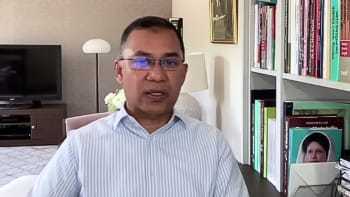Tariff policies should be sector specific: analysts
The government should introduce sector specific policies to eliminate existing tariff discrimination, Mozibur Rahman, former chairman of Bangladesh Tariff Commission, said yesterday.
It is not clear from the existing tariff policy what the government wants to encourage, import or export, Rahman said.
He spoke while addressing a seminar on “the tariff structure of Bangladesh and sector wise allocation of national budget”.
The seminar was jointly organised by the Economic Reporters Forum (ERF) and Dhaka School of Economics in the capital.
The existing tariff structure benefits some of the sectors, Rahman said.
The National Board of Revenue holds the power of setting up tariff, which is the main job of the tariff commission, he said. The government focuses on tax collection to increase revenue, but it should understand that the increasing tax burden will reduce consumption because of a fall in income, he said.
There is a lack of efficiency among bureaucrats who fix mechanisms to earn more revenue, he said.
Development is not possible if the budget is made excluding the deprived groups like the indigenous people, Haor people and beggars, he said. “Only project implementation does not reflect development.”
The proper implementation of the budget largely depends on the appropriate spending of the funds, he said.
The government's implementation capacity did not improve though the size of the budget has increased over the years, said Masih Malik Chowdhury, former president of the Institute of Chartered Accountants of Bangladesh.
There is not a dedicated desk in the industries ministry, which can guide a businessman on how to start a business, said Abdul Haque, director of the Federation of Bangladesh Chambers of Commerce and Industry.
A rapid change is needed in the administration to arrest corruption, he said.

 For all latest news, follow The Daily Star's Google News channel.
For all latest news, follow The Daily Star's Google News channel. 



Comments